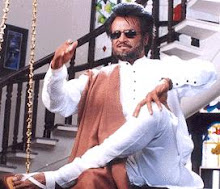This piece first appeared on mylaw.net.
***
In the wake of the Ayodhya judgment, I learnt a lot of law. The place of birth is a juristic person, apparently. Wait till the income-tax department, always looking for newer people, juristic or otherwise, hears of this. Two of the cases were dismissed on the grounds of limitation. That's rich. You're deciding whether some character called Babur built a mosque in 1528, and whether he destroyed a temple to do so, and you dismiss suits because they're filed beyond limitation.
Merits aside, the judgment threw up some interesting concepts - the "next friend" and the "shebait". Both terms sound shady.
I've heard that in Indian politics, the major political parties have their outwardly democratic structures - the President, the Vice-President, the Spokesperson and so on. But most politicians, apparently, also have an important figure around them, called their "best friend", who wields enormous power over their decisions - right from what he will have for lunch, what he will wear for a meeting, whom he will meet and what course the economy will take. A "next friend", I discovered, is someone like that. That treasure house of authoritative legal knowledge (I'm serious, ask the dudes in the big firms to swear that they've never relied on it to figure out what futures and options are), Wikipedia, defines it as "a person who represents in an action another person who is under disability or otherwise unable to maintain a suit on their own behalf as a result of their circumstances, who does not have a legal guardian". Our politicians are mostly in disability, they are usually a product of rather unfortunate circumstances, and their guardians tend to be illegal.
"Shebait" was harder to crack. Wikipedia has no entry on this word. A google search only reveals a lot of judgments from Indiankanoon.com, which suggests that beyond Indian temple law, the term does not have much use. A friend and I found the term highly useful. "I wish the High Court had more shebait." Or, "Dude, shebait, 7 o clock." "You're coming for this party?" "Depends on the shebait, macha."
And there were the jokes.
Q: How do you describe a Goan prostitute who specialises in temple administrators?
A: She baits shebaits on the sea shore.
My first hunch was that the term was Latin in origin. (I also had a feeling it might be French, given their shebaitic tendencies, but I rejected that thought immediately. Well, almost immediately.) I went through a large compendium of Latin maxims - a delightful old book that a family of rats had colonised. No luck there.
Then, I tried reading those old Indian judgments. They were of little help.
"It is true, it was a suit by some of the shebaits against the other shebaits, for the proper management of the debutter property but it cannot be said as contended on behalf of the appellant that two sets of shebaits were fighting with each other about the management of the properties...."
- Rangacharya v. Guru Revti AIR 1928 All 689
Sounds like quite a cat-fight. These judgments, though, threw up another curious word - "debutter". Who the hell is this guy? "I am putting on too much weight. I must debutter." The context suggested that "debutter" meant the Lord himself. But there was no assistance from Google on why this should be the case.
A friend at the bar, whose office has dealt with a fair number of debutters and shebaits over the years, told me that the term could be of Egyptian or Hebrew origin. He even pronounced the word as "shebayat". I spent a whole night on Hebrew and Egyptian dictionaries on the internet. I now had a collection of some choice swear words in two more languages, but no leads on the word "shebait". That night, I dreamt of shebaits and debutters locked in combat over a copy of the Bible.
In Court, the next day, I remembered - some kindred soul, whose family had no lawyers left, left me a thoroughly soporific book called "Essays on Classical and Modern Hindu Law." Flipping pages of this tattered tome, I came across a sole beacon of hope contained in a lengthy footnote, "... prefer the Bengali term 'shebayat' to describe these persons." Bengali!
One more fevered night of Googling ensued, at the end of which I found the entire story on a book on Sir John Woodroffe (the dude who wrote that book on evidence). "Shebait" came from "shebayat", although the origins of that word are still unclear. "Debutter", funnily enough, is a corruption of the word "devata".
"Dude, that shebait is quite the debutter!"




